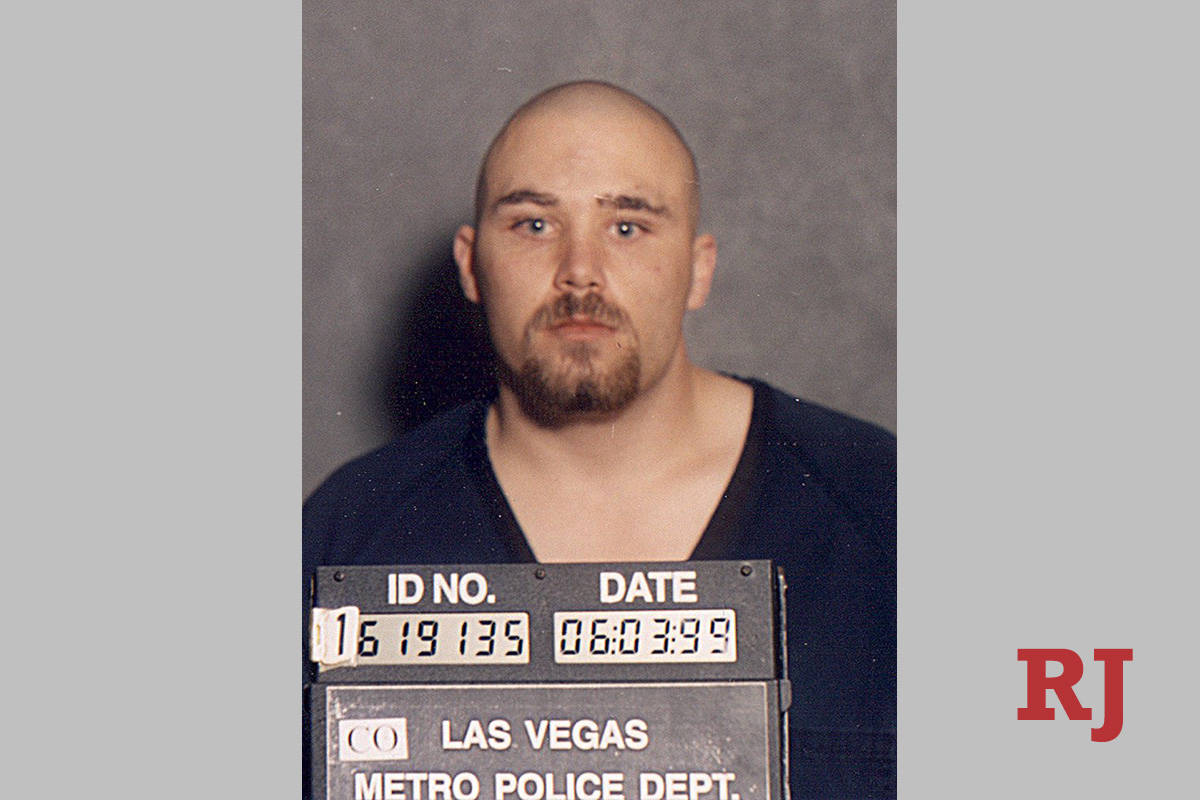Condemned Nevada killer prefers firing squad over lethal injection
Nevada death row prisoner Zane Floyd prefers a firing squad.
The 45-year-old man was condemned to die for fatally shooting four people and gravely wounding another inside a Las Vegas supermarket. Now he has the weapons and ammunition picked out for his own death, according to court papers filed Friday afternoon by his federal public defenders.
“Floyd specifically requests using a .22 Winchester Magnum Rimfire caliber bullet of 40 to 60 grains, fired by 2 to 3 rifles of the .22 WMR rifle class,” the lawyers wrote.
Rather than the Nevada Department of Corrections’ current “torturous” three-drug lethal injection cocktail, they added, a firing squad would ensure that “Floyd’s death would be extremely rapid.”
His attorneys have filed a series of briefs this week after the Clark County district attorney’s office formally sought a warrant of execution.
The goal of Floyd’s attorneys, according to the motions, is a stay of execution that would prevent the state from “attempting to implement any aspect of Nevada’s execution protocol against him.”
And the court papers filed Friday make clear that the U.S. Supreme Court requires alternatives in order to challenge a method of execution.
“Execution by firing squad is a feasible alternative method of execution that would significantly reduce the substantial risk of pain from Nevada’s current three-drug protocol,” the document filed in U.S. District Court states. “For example, a firing squad eliminates risks associated with establishing IV access. And a firing squad eliminates concerns with inmates’ physical and medical conditions.”
Another possible alternative would consist of injecting Floyd with two drugs — including pentobarbital, which has been used in federal executions — instead of three.
“The two-drug alternative significantly reduces the substantial risk of pain inherent in Nevada’s current protocol,” the document states.
Officials with the Nevada Department of Corrections have not made public what drugs would be used for Floyd’s execution, and his lawyers say that violates his constitutional rights.
“The State is treating Floyd disparately in depriving him of his fundamental right to notice of the manner in which the State intends to carry out his execution,” they wrote in a separate pleading. “Floyd does not possess the most basic information regarding the State’s intended method of execution and is not even assured that the intended method is by lethal injection as opposed to some other means.”
As Nevada lawmakers weigh the possibility of abolishing capital punishment, Floyd’s lawyers have asked state and federal judges to stop what would be the first execution in 15 years.
A jury sentenced Floyd to die for the 1999 killings inside a grocery store on West Sahara Avenue. He was dressed in military fatigues and armed with a 12-gauge shotgun hidden under a robe when he shot everyone he encountered.
Four employees — Lucy Tarantino, 60, Thomas Darnell, 40, Chuck Leos, 40, and Dennis “Troy” Sargent, 31 — died. Zachar Emenegger, 21, was shot twice and survived after playing dead in the produce section.
Floyd previously has tried and failed to challenge Nevada’s lethal injection protocol, which faced drawn-out legal scrutiny after another death row inmate, Scott Dozier, asked to be executed more than four years ago.
Two of the drugs proposed for that killing have since expired, and the state’s supply of a third drug, fentanyl, was expected to expire in June.
Under Nevada law, the prison director must “select the drug or combination of drugs to be used for the execution after consulting with the Chief Medical Officer.”
Dozier killed himself in an Ely State Prison cell in 2019 as his case lingered in the court system.
Contact David Ferrara at dferrara@reviewjournal.com or 702-380-1039. Follow @randompoker on Twitter.



















